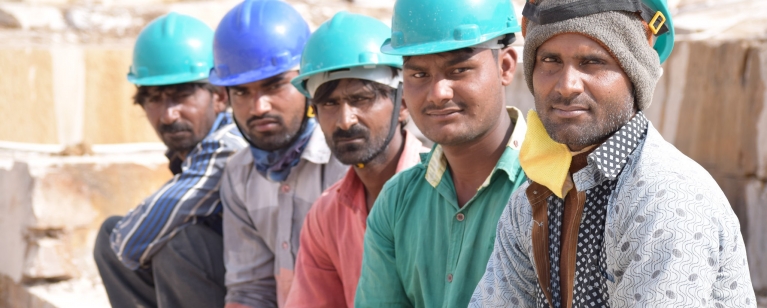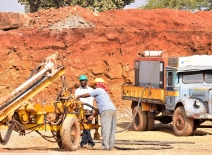
In 2012, ETI and our stone company members launched a project in Rajasthan, India to support ethical sourcing of sandstone from Rajasthan. ETI applied a meaningful multistakeholder and collaborative work approach, working with member companies, Indian stone suppliers, trade union representatives, local civil society representatives, local government and industry experts, with the goal of improving working conditions in the sandstone sector.
However, due to tensions between the different groups, it was initially challenging to bring them together. At ETI we managed these tensions by building our relationship with each stakeholder separately and working to understand their needs and interests. We looked for a common thread to bring them together, and found that each group was concerned about silicosis, a lung disease caused by inhaling large amounts of crystalline silica dust. This issue was used a starting point for engagement, and the relationship between the stakeholders grew. In 2013, the suppliers, NGOs and TUs formed an independent non-profit multi-stakeholder initiative called Sustainability Forum on Natural Stones, and in 2015 ETI published a guide for ethical sourcing, developed in collaboration with the different stakeholders.
Improving health and safety in Rajasthan’s stone industry

